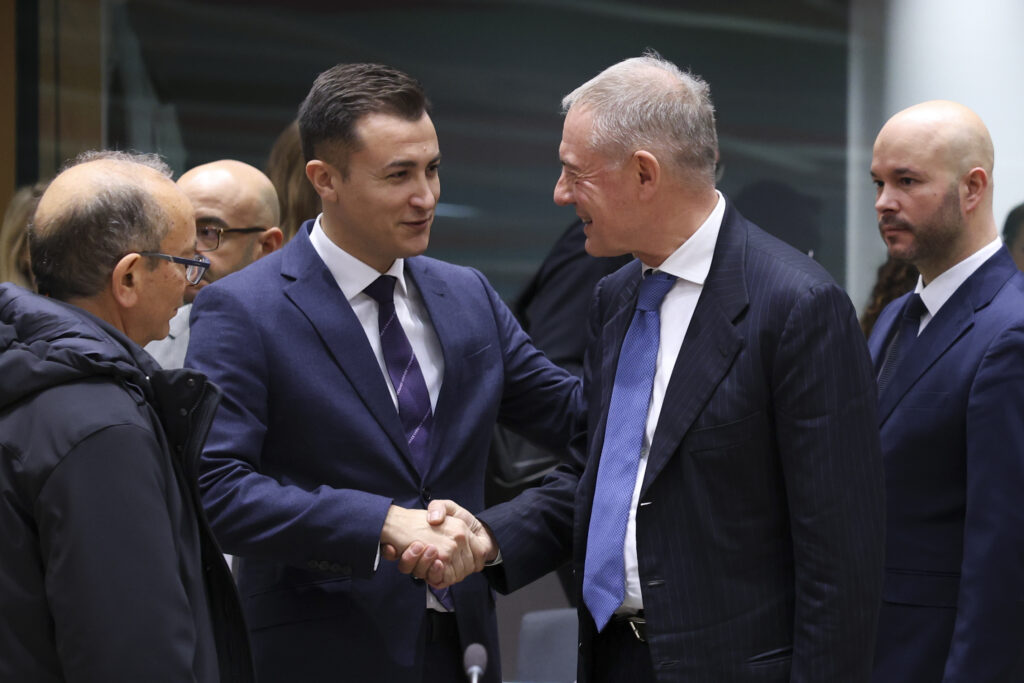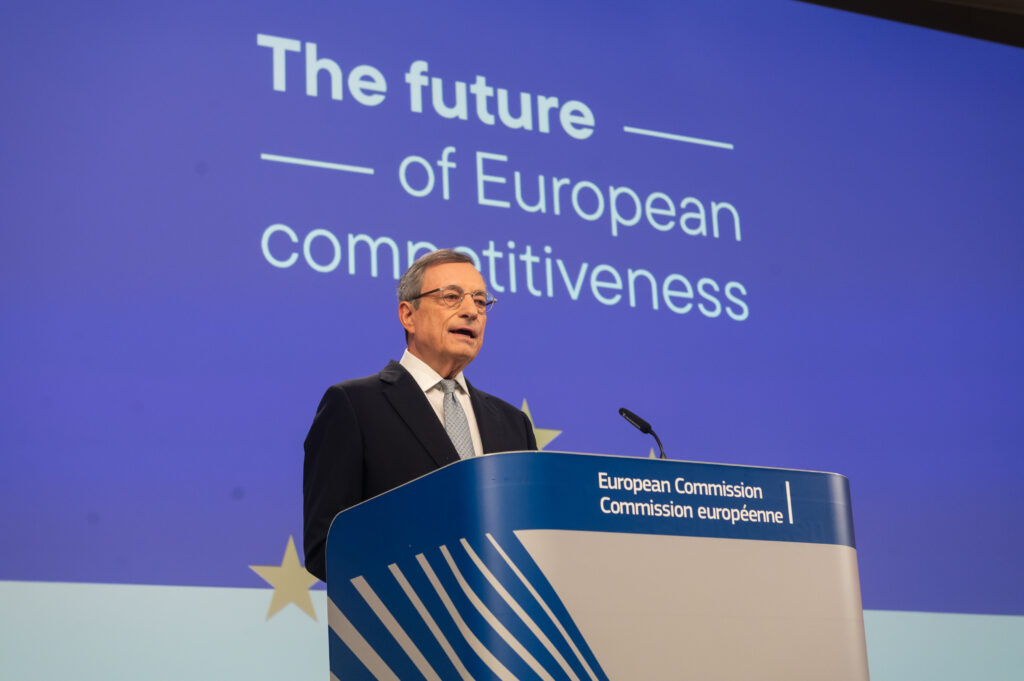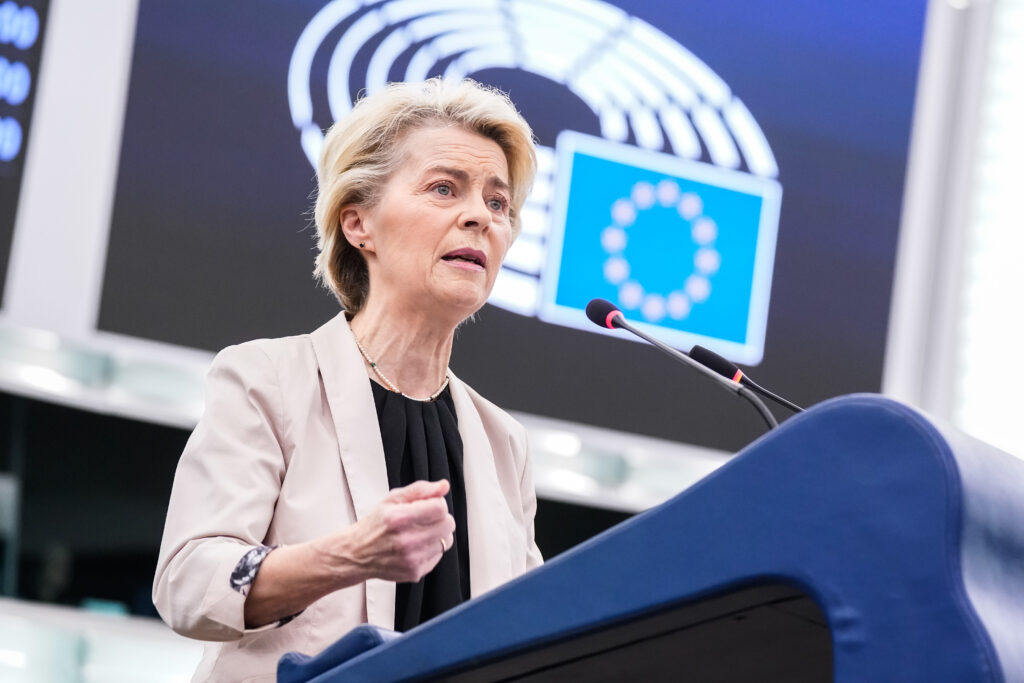Brussels – The Minister of Enterprise and Made in Italy, Adolfo Urso, is back in charge to continue his crusade to defend the national and European automotive sector. He assures us that he is finding new backing from member country governments. The goal, in line with the political priorities of the new von der Leyen Commission, approved yesterday from the EU Parliament in Strasbourg, is to relaunch EU competitiveness by combining environmental and industrial sustainability in the wake of the new “Green Industrial Pact” announced by the president of the EU executive.
The Italian-Czech non-paper
At today’s (Nov. 28) Competitiveness Council (COMPET), the MIMIT holder presented the Twenty-Seven with an informal document drafted together with his Czech counterpart—Rome and Prague are, incidentally, the only governments in the EU led by parties that are part of the European Conservatives (ECR)—calling, among other things, for anticipating the activation of the review clause of the European regulation on CO2 emissions from light vehicles, currently scheduled for 2026, to the first half of 2025.
This should enable companies to adapt more effectively to the new European rules to avoid steep penalties (in the range of €15-17 billion as early as 2025, according to Urso’s estimates) and to revive industrial production in the Old Continent, a prerequisite for gaining lost competitiveness in the global market.
The non-paper has been widely anticipated in recent months and signed by Austria, Bulgaria, Malta, Poland, Romania, and Slovakia so far. “We are particularly pleased with the broad convergence of positions expressed” by the European partners, Urso told reporters as he left the afternoon session of the Council. Confindustria, BDI and MEDEF (the Italian, German and French business associations) also joined the Italian government’s line, signing a joint statement at the Trilateral Business Forum in Paris. The same is also true for the European associations of industrial SMEs, including CONFAPI and several members of the CEA-PME network.

Targets on emissions
First of all, the signatory countries aim to review how the stop to internal combustion engines that will be triggered in 2035 will have to be translated into reality: goals and deadlines are not questioned, MIMIT said, but meeting them requires a timely review of the regulation, which, according to Urso, cannot wait until 2026 as initially planned for light vehicles and 2027 for heavy vehicles.
Fulfilling the interim targets (such as reducing CO2 emissions by 15 per cent from 2021 levels by 2025) will be complex, national governments complain, especially considering the slowdown in electric vehicle deployment. To better engage industry stakeholders, the paper suggests the establishment of a “partnership forum” between automotive representatives, the European Commission and member states where the Union’s industrial strategy could be discussed.
The text then insists on the concept of technology neutrality, a principle also taken up by the Draghi report, to pave the way for the widest possible range of solutions for low-emission vehicle fuelling. Such solutions include sustainably powered endothermic engines, which are to be considered along with alternative powertrains such as biofuels, another pet peeve of the Italian government.

Strategic Autonomy
It is a matter, according to Urso, of “conjugating industrial and social sustainability with environmental sustainability” and deploying “significant resources to support businesses” and European households through an “Automotive Plan” promoted by Brussels. Competitiveness is “the challenge of challenges for Europe,” according to the head of MIMIT: “The gap with other continents is growing every day, and we need to decide realistically,” he said, and above all, we need to decide quickly.
The ultimate goal is EU’s strategic autonomy in green technologies, starting with the supply of critical raw materials for producing electric batteries and consolidating the Old Continent’s industrial supply chain. For the minister, Europe is running the risk of moving from “dramatic subordination” to Russian fossil fuels to “worse technological subordination to other state actors” such as China (which holds a global monopoly on the processing of critical raw materials essential to the energy transition).
The node of funding
With what resources will all this be paid for? In his address to COMPET, Urso stressed that to realize these ambitious projects, “common resources will also be needed,” citing the example of the United States, where private capital is also being mobilized. The minister welcomed the initiative, announced yesterday in Strasbourg by von der Leyen, to launch a “strategic dialogue on the future of the automotive industry” on the Old Continent.

The idea, embraced by Urso, is to bring manufacturers and legislators to the same table “to find solutions together” at a time when “the industry is going through a profound and disruptive transition.” He argued that the situation in the member states is problematic, “with announcements every day that projects are suspended or cancelled on the path to electric,” with plans to build gigafactories being cancelled, and with announcements of plant closures and worker layoffs multiplying in recent months.
Towards a reform of the carbon tax?
Another point on which Italy is trying to convince its European partners is the Border Carbon Adjustment Mechanism (CBAM), otherwise known as the carbon tax. Rome is working on another non-paper together with France, Poland, and “other countries” to revise the parameters set by the Commission since these, Urso explained, “are clearly inadequate to sustain the competitiveness of Europe’s energy-intensive industries, starting with steel and chemicals.”
“We don’t have an ideological view but a pragmatic and responsible one,” he added, anticipating that the informal document will also mention “support for exporters to make the product made in Europe competitive in global markets compared to products made in other countries that do not abide by the rules we have set for ourselves.”
English version by the Translation Service of Withub
![automotive [foto: ACEA]](https://www.eunews.it/wp-content/uploads/2021/09/auto.jpg.webp)





